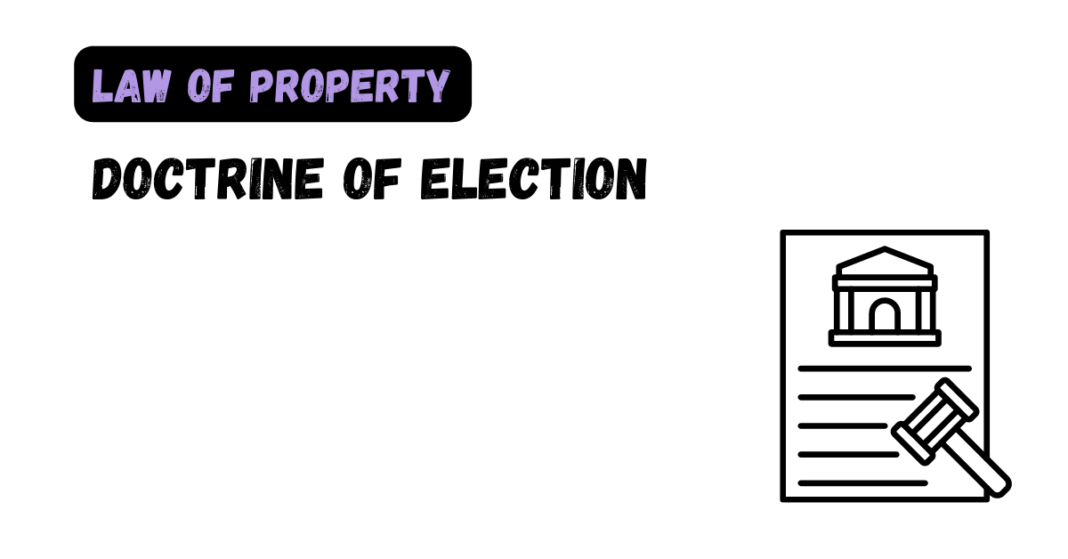The doctrine of election is a legal principle that applies to situations where a person has a right to choose between two or more alternative rights or benefits. It is based on the idea that a person cannot accept one benefit or right while simultaneously rejecting another that is inconsistent with it.
In the context of property law, the doctrine of election can arise when a person is given a choice between two or more properties or interests, and must choose which one to accept.
Example: if a person is bequeathed a property in a will, but that property is also subject to a mortgage, the person must choose whether to accept the property subject to the mortgage or to renounce the bequest altogether.
The Doctrine of Election has two Main Purposes
The first is to prevent unjust enrichment. If a person accepts a benefit or right, but then later attempts to disclaim it when it becomes disadvantageous, they may be seen as trying to have their cake and eat it too. The doctrine of election ensures that a person cannot accept a benefit while simultaneously rejecting the corresponding obligation or burden.
The second purpose of the doctrine of election is to promote clarity and certainty in legal transactions. By requiring a person to make a clear and unambiguous choice between two or more options, the doctrine of election helps to prevent confusion and disputes over the interpretation of legal documents or agreements.





